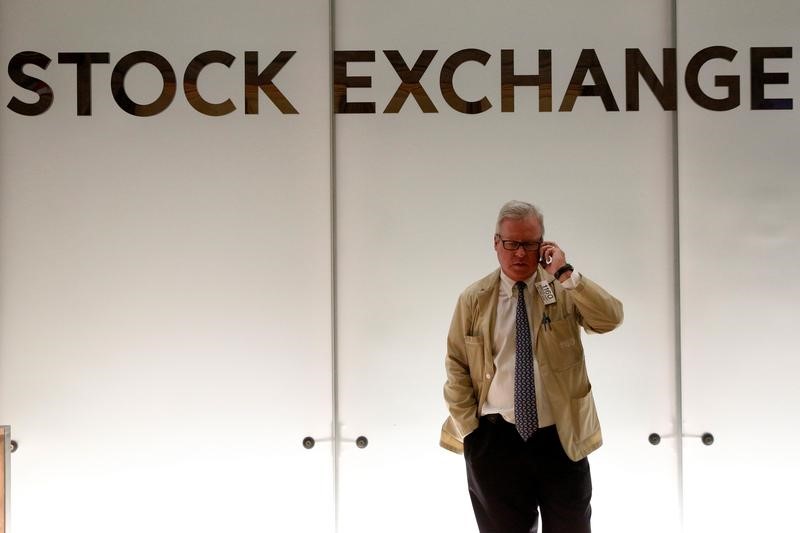* Wall Street closes down more than 4%
* Investors look nervously ahead to earnings
* Oil slides as consumption slows, inventories build
* Dollar, yen gain on safety bid
By Tom Westbrook and Herbert Lash
SYDNEY/NEW YORK, April 2 (Reuters) - Asian equity markets and crude oil looked set for further losses on Thursday, after a dire warning about the U.S. coronavirus death toll and mounting evidence the fast-spreading disease has sent the world economy hurtling into a deep recession.
Stocks on Wall Street fell more than 4% as the warning of a potentially massive death toll and growing evidence of a deep economic downturn reinforced expectations that corporate results will suffer in the first quarter and then turn sharply lower.
U.S. President Donald Trump said he is considering a plan to halt flights to coronavirus hot zones in the United States as his administration struggles to contain a pandemic that is projected to kill at least 100,000 people. cancellations to U.S. destinations would hammer an already reeling airline industry and add to an overall slowdown in business that will curb corporate earnings.
Nikkei futures NKc1 rose slightly, but sat about below the index's cash close. Hong Kong futures HSIc1 were negative.
E-Mini futures for the S&P 500 ESc1 rose 0.67%.
MSCI's broadest index of Asia-Pacific shares outside Japan .MIAPJ0000PUS fell 0.64% in early trade.
Bank stocks led losses in Australia after New Zealand's central bank ordered lenders suspend dividends - hitting Australia's banks since they control nearly all New Zealand's banking sector. McCarthy, chief strategist at brokerage CMC Markets in Sydney, said bad news worldwide was starting to weigh.
"The shift in rhetoric from the White House has hurt some of the more bullish traders," he said.
MSCI's gauge of stock performance in 47 countries .MIWD00000PUS slid 0.08% after declining almost 4% overnight in bourses in London .FTSE , Frankfurt .GDAXI and Paris .FCHI .
"The question of whether the U.S. index goes to test the March lows will be all the talk today," Chris Weston, head of research at Melbourne brokerage Pepperstone, said in a note.
"Earnings estimates are too high," he said. "And when we're hearing of companies curbing buybacks, and shelving dividend plans, then we should expect this to resonate through earnings downgrades too."
Oil prices fell after U.S. crude inventories rose last week by the most since 2016, while gasoline demand suffered its biggest weekly drop ever as the coronavirus shut down businesses and stay-at-home mandates kept highways bare.
Analysts expect similar data in coming weeks as refineries curb output further and gasoline demand continues to decline.
U.S. crude inventories USOILC=ECI rose by 13.8 million barrels last week, the U.S. Energy Information Administration said, in the biggest one-week increase since 2016.
West Texas Intermediate (WTI) crude CLc1 fell 17 cents to settle at $20.31 a barrel, after sliding to a low of $19.90.
June Brent crude LCOc1 fell $1.61 to settle at $24.74 a barrel. The global benchmark fell to $21.65 on Monday, its lowest since 2002, when the now-expired May contract was the front month.
The dollar gained as investors rushed to safe-havens, such as gold and government debt.
Coordinated action by central banks to boost dollar supply has helped calm extreme volatility, analysts said.
The dollar index =USD rose 0.536%. The Japanese yen JPY= weakened 0.09% versus the greenback at 107.28 per dollar.
Spot gold XAU= rose 0.12% to $1,592.52 an ounce.
U.S. manufacturing activity contracted less than expected in March, data showed, but disruptions caused by COVID-19 pushed new orders received by factories to an 11-year low, reinforcing economists' views that the economy already was in recession.
Boston Federal Reserve Bank President Eric Rosengren said social distancing efforts meant to contain the coronavirus outbreak have "stilled" the U.S. economy and could lead the unemployment rate to "rise dramatically." jumped toward the perceived safety of government bonds on the economic outlook, pushing the yield on the benchmark 10-year U.S. Treasury note down to 0.6019% from 0.699% late on Tuesday.
<^^^^^^^^^^^^^^^^^^^^^^^^^^^^^^^^^^^^^^^^^^^^^^^^^^^^^^^^^^^ Global currencies vs. dollar
http://tmsnrt.rs/2egbfVh MSCI All Country Wolrd Index Market Cap
http://tmsnrt.rs/2EmTD6j
^^^^^^^^^^^^^^^^^^^^^^^^^^^^^^^^^^^^^^^^^^^^^^^^^^^^^^^^^^^>
